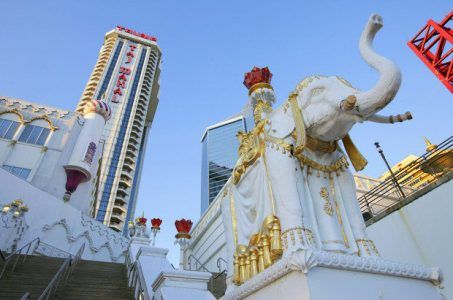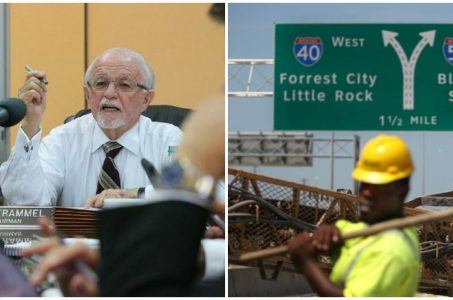Atlantic City Casinos Spark Bankruptcy Court Battles
Posted on: November 28, 2014, 08:00h.
Last updated on: November 27, 2014, 04:15h.

Atlantic City’s closed (and closing) casinos are at the center of several interesting storylines currently taking place in bankruptcy courts. From fights over driveways to questions about unpaid taxes, bankruptcy judges are considering several different situations regarding struggling resorts in the New Jersey city.
In the first issue, real estate tycoon Donald Trump is hoping to recover funds that he says he paid to the landlord of the driveway that lead up to what was the Trump Plaza casino, which closed in September. Trump claims that he paid $147,000 to the landlord, despite the fact that the money was actually owed by Trump Entertainment Resorts, a company he now only holds a ten percent stake in. He has now submitted a court filing to recover those funds.
Donald Wants Repayment from Trump Entertainment
According to Trump, who also sent a letter to R&R Associates (the landlord of the driveway), he only agreed to pay the rent “in order to avoid litigation” for the time being. He now believes he should be “reimbursed by the debtor,” by which he means Trump Entertainment. The company did not respond to the claim.
It’s not the only dispute between Trump and the company that still bears his name.
Trump and his daughter are currently suing Trump Entertainment in an attempt to remove the Trump name from their casinos. The Trump name has mostly been eliminated at the now-closed Plaza, but Trump Entertainment has refused to do the same at the Trump Taj Mahal. The Trumps say that the resorts have fallen into disrepair, violating a quality agreement and hurting the Trump brand.
Several Casino Tax Issues to be Decided
Meanwhile, there are also several tax issues that are currently being resolved in court. On Tuesday, a Delaware bankruptcy court approved a deal between Trump Entertainment and Atlantic City that will allow the city to hold a tax sale of the $24 million in unpaid taxes owed to them by the company. In a tax sale, an investor can buy a lien against the company and agree to pay the taxes due. If the property owner pays off the taxes, the investor gets paid; if that doesn’t happen after two years, the investor has the right to foreclose on the property. The tax sale is scheduled to take place on December 11, just one day before the Taj Mahal may close.
The former Revel Casino Hotel is also embroiled in tax issues. On Monday, the owners filed an appeal of a bankruptcy court order that would have allowed Atlantic City to hold a tax sale of their $32 million in unpaid property taxes. The city asked for a tax sale after the $110 million purchase of the Revel by a Canadian firm fell through. The proceeds from that sale were expected to be used to pay off the back taxes.
Taj Mahal Wants Union to Drop Appeal
There has also been movement in the ongoing battle between the Trump Taj Mahal and the union workers who have appealed a bankruptcy court order that cancelled their health insurance. Trump Entertainment president Robert Griffin now says that while the company still plans to close the casino on December 12, they are willing to commit to restoring full health care benefits to members of Local 54 of the Unite-HERE casino workers union if the union will agree to drop their appeal.
The deal would also include contributions to a pension plan for workers. While these are not the only issues the union had with the cancellation of their contract, the company is hoping that resolving the largest complaints will lead the union to agree to accept the rest of the court order.
Related News Articles
Pair Found Guilty in New Zealand Roulette Scam
Trump Taj Mahal Delays Closing Date to Late December
Arkansas Highway Commission Cautions Voters on Casino Ballot Question
Most Popular
LOST VEGAS: ‘Tony The Ant’ Spilotro’s Circus Circus Gift Shop
Las Vegas Overstated F1 Race’s Vegas Impact — Report
Mega Millions Reportedly Mulling Substantial Ticket Price Increase
Las Vegas Strip Stabbing Near The Strat Leaves One Man Dead
Most Commented
-
End of the Line for Las Vegas Monorail
— April 5, 2024 — 90 Comments -
Mega Millions Reportedly Mulling Substantial Ticket Price Increase
— April 16, 2024 — 8 Comments -
Long Island Casino Opponents Love New York Licensing Delays
— March 27, 2024 — 5 Comments -
VEGAS MYTHS RE-BUSTED: You Can Buy Legal Weed On the Strip
— March 22, 2024 — 4 Comments
















No comments yet